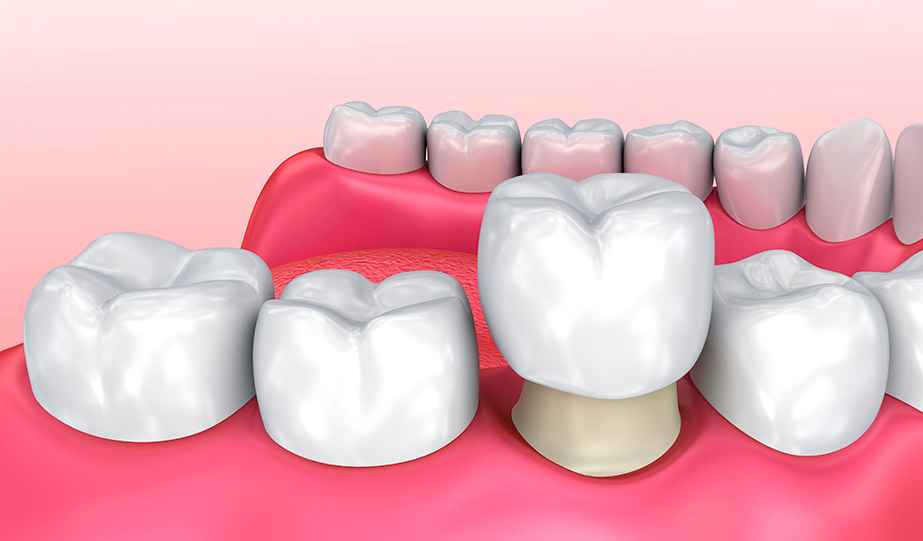
Dental crowns stand as a significant advancement in restorative dentistry, blending functionality with aesthetics. For those seeking expert dental care, including the placement of dental crowns, a dentist in Wilmington, NC, offers a combination of professional expertise and advanced techniques. They enable individuals to regain their smile and dental health, but it’s essential to understand both the benefits and potential drawbacks they bring.
Benefits of Dental Crowns
Restoration of Damaged Teeth: Crowns restore teeth that have been broken, decayed, or damaged, bringing back their original shape, size, and functionality, which is crucial for proper chewing and speaking.
Protection Against Further Damage: For weakened teeth, a crown acts as a protective cover, preventing further deterioration and avoiding more invasive procedures in the future.
Aesthetic Improvement: Modern materials like porcelain and ceramic allow crowns to be tailored to match the natural tooth color, enhancing self-confidence and smile aesthetics.
Durability: Dental crowns are designed to last, offering a long-term solution that can span from five to fifteen years, or even longer.
Improved Oral Health: Crowns maintain proper oral hygiene by preventing bacterial accumulation and decay in damaged areas, contributing to overall oral health.
Risks and Considerations
Enamel Removal
Enamel removal is an essential part of fitting a dental crown. This irreversible process can increase tooth sensitivity and susceptibility to decay. It’s a critical step for crown placement but requires careful evaluation due to its permanent nature.
Sensitivity and Discomfort
Patients often experience sensitivity to hot and cold temperatures following crown placement. This discomfort, while usually temporary, can be initially challenging and may necessitate a period of adjustment.
Risk of Poor Fit or Damage
Incorrectly fitted crowns can lead to discomfort, bite problems, and bacterial leakage, potentially causing decay. Porcelain crowns, in particular, are susceptible to chipping or breaking, underscoring the need for precise fitting and craftsmanship.
Allergic Reactions
Allergic reactions to crown materials, though uncommon, are a potential risk. Patients must discuss any allergies with their dentist to prevent adverse reactions.
Cost Considerations
The cost of dental crowns can be substantial, particularly for individuals without dental insurance. Factors influencing cost include the crown’s material and the complexity of the procedure. While insurance may cover part of the expense, it’s important for patients to consider these financial implications when deciding on a dental crown.
Material Choices for Dental Crowns
Choosing the right material for a dental crown is pivotal, as it affects not only the appearance but also the functionality and durability of the crown. For those interested in exploring their options and learning more about the various materials, you can check this link for detailed information on dental crowns in Wilmington, NC. Here, you’ll find insights and expert advice tailored to help you make the best decision for your dental health needs.
Metal Crowns: These include gold, palladium, nickel, and chromium. Metal crowns are highly durable and require minimal tooth removal. Their major downside is the metallic color, making them more suitable for molars that are not visible.
Porcelain-Fused-to-Metal (PFM) Crowns: Offering a balance between strength and aesthetics, PFM crowns are durable and can be color-matched to adjacent teeth. However, the porcelain part can chip, revealing the metal underneath.
All-Ceramic or Porcelain Crowns: Ideal for front teeth due to their natural appearance. They are suitable for patients with metal allergies but may not be as strong as metal or PFM crowns.
Resin Crowns: A more affordable option, but they are less durable and more prone to fractures compared to other types.
Each material has its own set of pros and cons, and the choice largely depends on the location of the tooth, the patient’s aesthetic preferences, and budget considerations.
Aftercare of Dental Crowns
Proper aftercare is essential to extend the life of a dental crown. Here are some key aftercare tips:
Regular Oral Hygiene
Maintaining good oral hygiene is paramount for the longevity of a dental crown. This involves regular brushing and flossing to prevent decay and gum disease, especially around the crowned tooth. Using a soft-bristled toothbrush and non-abrasive toothpaste can help in protecting the crown’s surface.
Avoiding Hard Foods
Patients should avoid hard and sticky foods that can damage the crown. Foods like nuts, ice, and hard candies can exert excessive pressure on crowns, potentially leading to cracks or dislodgement, especially soon after the crown is placed.
Regular Dental Checkups
Routine dental checkups are critical for assessing the health of the crown and the underlying tooth. Regular professional cleanings can help maintain the crown and address any issues before they become significant problems.
Addressing Bruxism
For patients who grind their teeth, a condition known as bruxism, wearing a custom-fitted night guard is advisable. This guard helps protect the crown and surrounding teeth from the excessive force generated during grinding.
Immediate Attention to Dental Issues
It’s important for patients to promptly address any issues such as discomfort, a loose crown, or changes in bite. Early intervention by a dentist can prevent further complications and ensure the longevity of the crown.
Mindful Eating Habits
Developing mindful eating habits, such as chewing food evenly on both sides of the mouth, can reduce the strain on the crown. Avoiding using the crowned tooth as a tool to open packaging or bite nails is also essential.
Use of Dental Products
Using dental care products like mouthwash can help maintain oral hygiene and protect the crown. However, it’s important to choose products that are suitable for use with dental crowns to avoid any adverse reactions.
Conclusion
Dental crowns offer a reliable solution for restoring and enhancing teeth, but their success largely depends on the choice of material and diligent aftercare. By understanding the benefits and risks, along with the maintenance requirements of dental crowns, patients can make informed decisions and enjoy the long-term benefits of their dental restorations.

Written by Michael Zippo
Michael Zippo, passionate Webmaster and Publisher, stands out for his versatility in online dissemination. Through his blog, he explores topics ranging from celebrity net worth to business dynamics, the economy, and developments in IT and programming. His professional presence on LinkedIn - https://www.linkedin.com/in/michael-zippo-9136441b1/ - is a reflection of his dedication to the industry, while managing platforms such as EmergeSocial.NET and theworldtimes.org highlights his expertise in creating informative and timely content. Involved in significant projects such as python.engineering, Michael offers a unique experience in the digital world, inviting the public to explore the many facets online with him.
